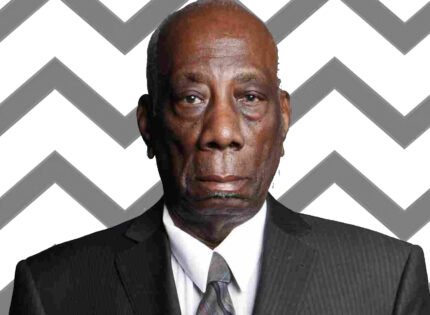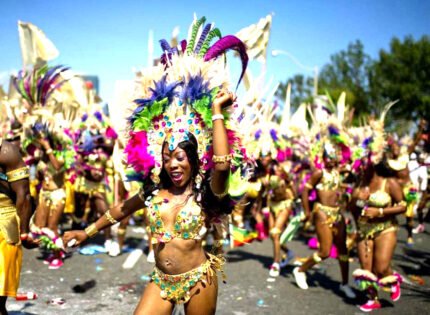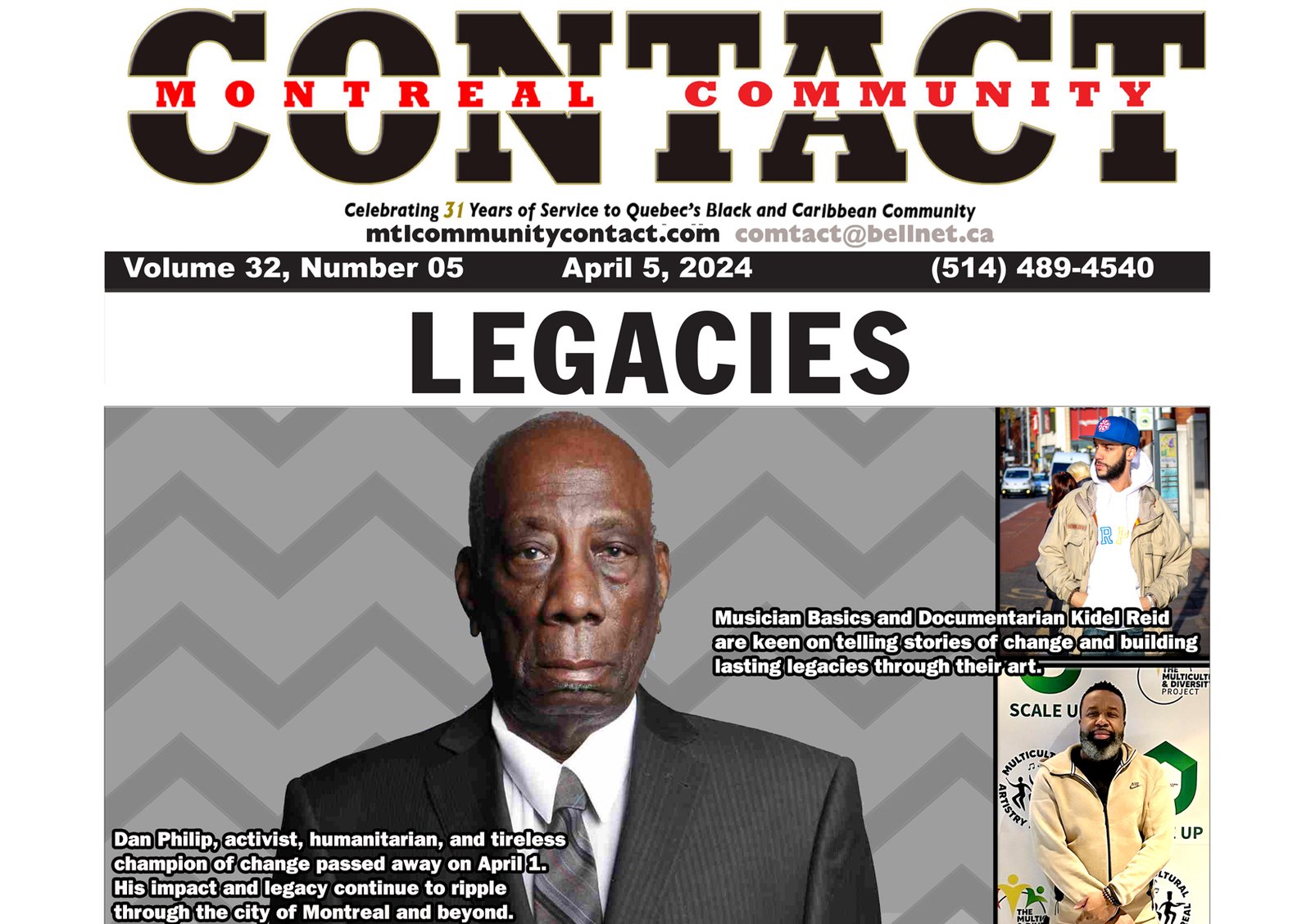But even in their insulated and carefully guarded and manicured existence, history cannot and shouldn’t stay hidden forever.
Contact Staff
For so many people around the world, the marriage of Prince Harry to Meghan Markle was as moving as it was memorable and groundbreaking.
After all, here is a prince, the fifth in line to the British throne, bringing into the hallowed House of Windsor a woman who not only is not perceived to be of his ilk, but also is Black.
It’s important to point out that the winsome Ms. Markle, a star of television and screen, now the Duchess of Sussex, has made a point of stating that she’s not comfortable being in that “Black” box because of her Caucasian father who advised her to draw her own box.
Whatever.
The wedding, however, with all its complexities was one for the ages and drew well over 35 million viewers in North America, Europe and around the world. And for the most part people are still giddy with excitement over what seems to have bucked all the traditions associated with those Royals and the way they are.
Black people, especially, are besides themselves with the enthusiasm of seeing their “boy”, the incorrigible young Harry, grow up to be a responsible young man with the gumption to bring this colored woman to a place where for centuries her kind has always been colonials or subjects of his ancestors.
You see, the House into which he was born, was proclaimed on July 10, 1917, as the official home to a monarchy that reigns over 16 countries, 13 of which can be categorized as Black countries, including Barbados, the Bahamas, Grenada, Jamaica, Papua New Guinea, Solomon Islands, Tuvalu, Saint Lucia, Saint Vincent and the Grenadines, Belize, Antigua and Barbuda, and Saint Kitts and Nevis.
And in the 66 years that his grandmother, Queen Elizabeth II, has been head of that household, there has never been any indication that there was any room for cultural diversity in an institution that’s exclusionary as it is staid and stuffy.
So having this young Black American woman join the line to become Queen of England was an intoxicatingly entrancing spectacle. So too was the wedding ceremony that bound her and her Prince Charming together, with its myriad Black or Afro-centric representation, themes and symbolism totally throwing the normalcy of the Church of England, where it was held.
While most people and hardcore monarchists were respectfully muted, so many Blacks, especially on social media, seem unable to contain themselves, especially when it came to the cool, calm and collected posture of the bride’s mother, Doria Ragland, who impressed a lot of people because they say, she “brought her dreadlocks into the presence of the Queen. (Go figure.)
Others were equally taken by the talkative and highly expressive Reverend Bishop Michael Curry of Chicago, whom they appreciated because he brought some “Black church” to the ceremony.
Don’t talk about the young Black cellist, Sheku Kanneh-Mason, who was the winner of the BBC 2016 Young Musician of The Year award, and the rendition of “Stand By Me” offered by Karen Gibson and Kingdom Choir, so many Black people admit to “bawling their heads off,” just thinking of those performances, still.
Ah well, it’s over and done with. All that’s left is the casual observances of what does the future hold for newly minted Prince and Princess of Sussex.
The headline on one grocery tabloid screams: “Harry and Meghan’s Marriage Will Be Over In Less than Five Years.”
Haters…
Now that the deed has been done, the hope is that Meghan and Harry have a long and fruitful life together.
But most importantly, the hope is that her presence in the House of Windsor will be a constant reminder to those who are there of the exorbitant debt that they owe to her ancestors and to Black people around the world.
You see, it’s not a conversation that’s entered into easily.
The British monarchy is an incredibly rich institution, with an estimated total worth that goes easily beyond $1 billion.
The Queen by herself, they say, is worth about $530 million and that’s not counting treasures such as the Crown Jewels and other valuables , which she’s supposed to be holding in trust for Britain.
And this is where Meghan, the new Duchess of Sussex, comes in: a great chunk of that wealth was acquired on the backs of Blacks and in some instances stolen from her ancestors, back in Africa and other spots around the world.
Dr. Eric Williams, former prime minister of Trinidad and Tobago, and one of the world’s most recognized historians in his seminal book, Capitalism and Slavery, documents how Britain’s development as a world power in trade hinged on its role in the African slave trade.
Also, he wrote extensively about Royal African Company, established in 1672, as a significant player in the English slave trade that was founded by the Duke of York and his brother Charles II.
Dr. Williams was methodical in his research, tracing Britain’s meteoric growth as a trading nation in particular, and the industrial revolution in Western Europe in general, as was financed by the trade in African bodies.
Industries such as shipbuilding, textile (wool and cotton), sugar refining, rum distillation and metallurgy all grew out of the triangular trade that grabbed millions of Africans from the continent packed them like sardines in a can in the bellies of ships and transported them to the colonies in the Caribbean and North America (Canada and the USA).
Today, as so many of us continue to celebrate the Royals and their kingdom, there is little thought about the price that was paid for their opulence by those who came before us.
And there’s little talk of them repaying their debt.
In a recent speech on the topic: ‘Faked Emancipation, Insincere Independence, Reparatory Justice: A 21st Century Paradigm for Economic Growth’ Professor Sir Hilary Beckles, vice chancellor of the University of the West Indies, estimated that the Royals and Britain owed Caribbean nations an estimated £76 billion or about US$100 billion.
However, talk of reparation is deemed out of order because as former British Prime Minister Tony Blair said: “Slavery was perfectly legal at the time it was practiced.” He expressed “regret” but wouldn’t even consider apologizing.
An attitude that’s reflected in the recent treatment of the group referred to as the Windrush generation as Britain embarked on an initiative to revoke the status of tens of thousands of people from the Caribbean and their descendants by destroying their arrival papers.
They arrived in the UK between 1948 and 1971 from Caribbean countries the first group on the ship MV Empire Windrush on 22 June 1948, bringing workers from Jamaica, Trinidad and Tobago and other islands to fill jobs in Post-war UK where there were massive labor shortages.
Because of the actions of the Conservative government, motivated by anti-immigrant sentiment, tens of people became illegal immigrants in a country they called home for more than 50 years, some unable to access health care, drivers’ licenses, others unable to re-enter the country after travelling overseas.
Truth is, maybe Meghan and Harry shouldn’t have to worry about these things in their new role as the Duke and Duchess of Sussex, as they have so many Royal duties to fulfill…
But even in their insulated and carefully guarded and manicured existence, history cannot and shouldn’t stay hidden forever.














